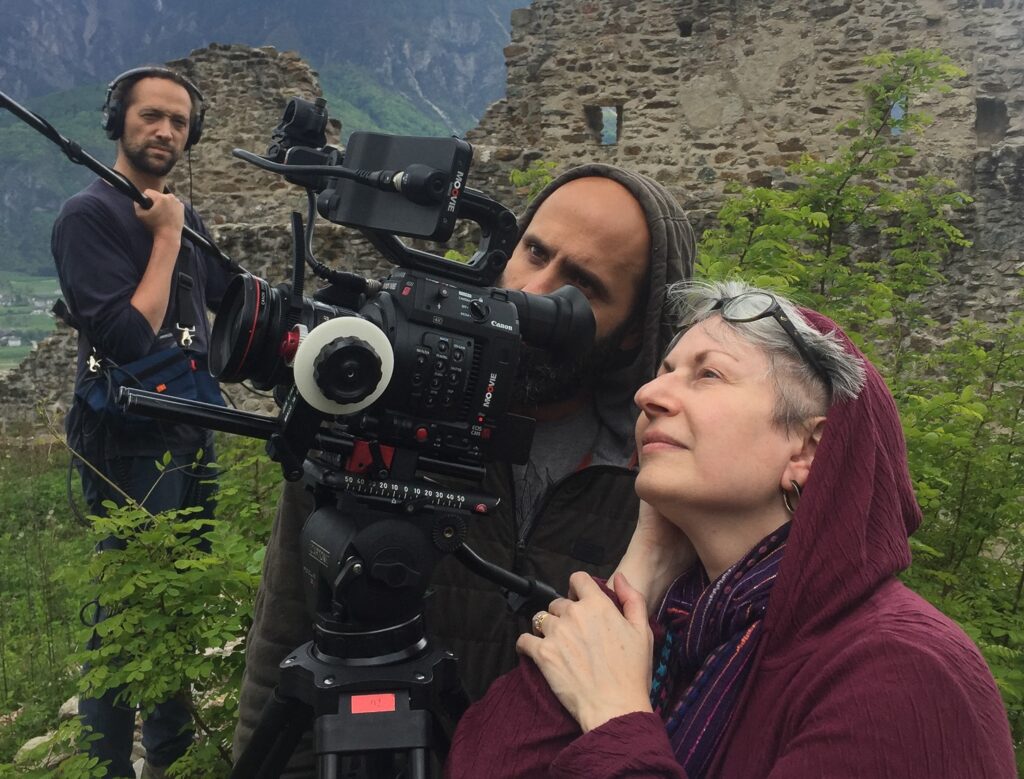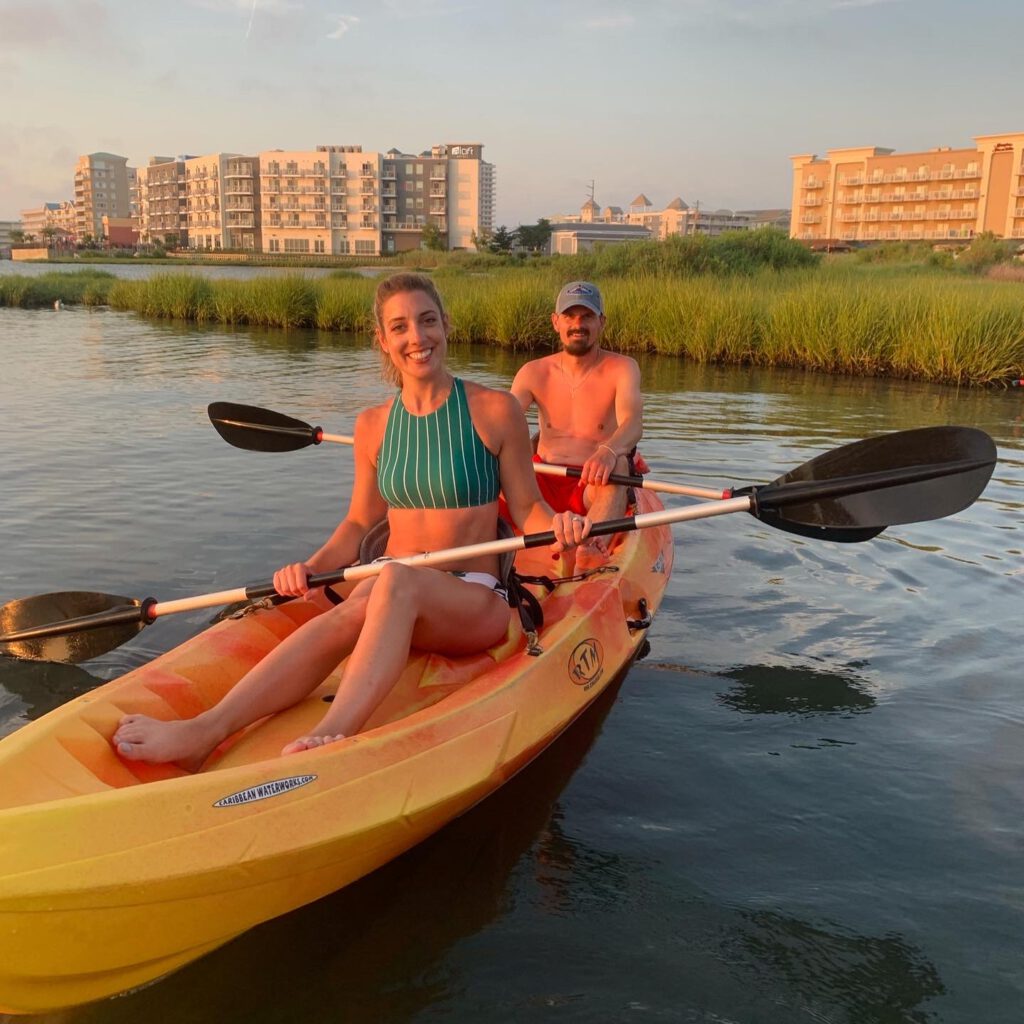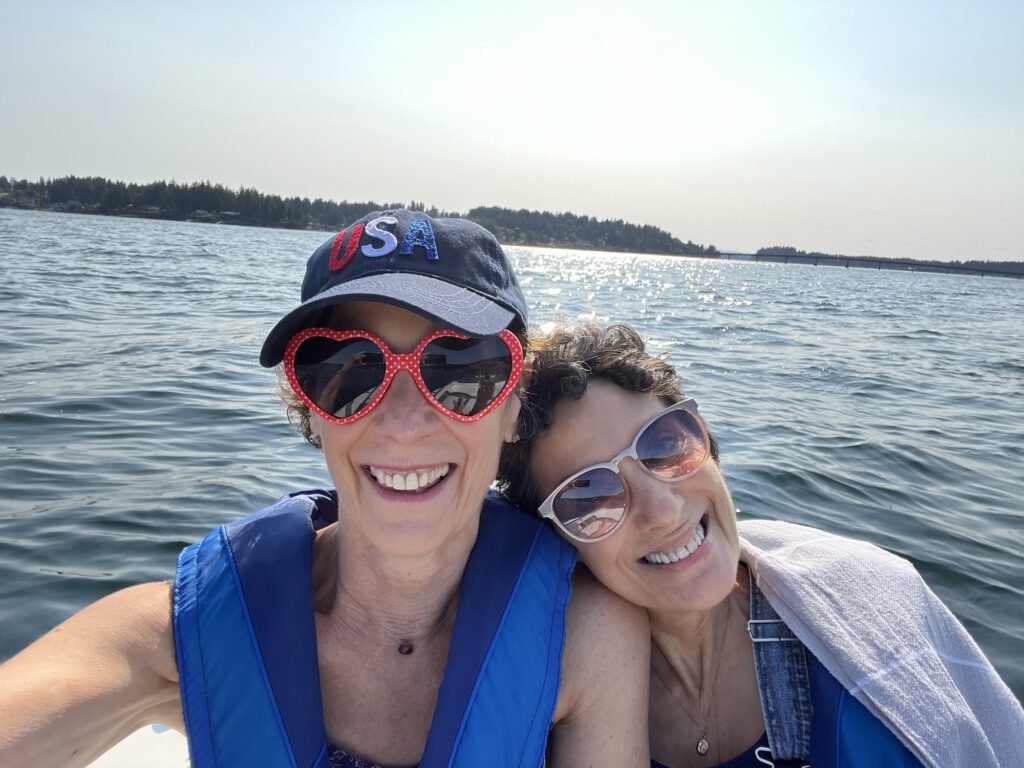
Insurance, Work & School
A gynecologic cancer diagnosis can disrupt many areas of life such as work, school, and finances.
Scholarship funds, help with lodging and travel, and more.
Cancer Finances is an online toolkit to help people manage finances after a cancer diagnosis.
Triage Cancer provides quick guides and checklists that offer practical information about finances and financial toxicity, navigating health insurance, and employment and work. Also offer resources in Spanish.
Describes the Social Security Administration (SSA) Compassionate Allowances program to help reduce some of the financial burdens that may accompany the diagnosis of ovarian cancer (stage 4 only).
Healthcare.gov is the website where you can research different insurance plans in your state to find the best fit for you and sign up during open enrollment or a Special Enrollment Period.
Offers description of each program including SSI, SSDI, and returning to work.
Women with all stages of ovarian cancer may qualify for social security disability income. Visit this website to learn more and apply.
A questionnaire that evaluates eligibility criteria for supplemental security income and social security disability.
The goal of DisabilityGuidance.org is to continue serving as the internet’s most comprehensive resource for SSDI and SSI assistance, providing you with the necessary tools for every step of your disability benefits journey. They have partnered with top disability representatives across the country who will evaluate your claim for eligibility at no cost and explain your chances of being approved. Their website also offers a great resource listing every Social Security office in the US so you can easily find your local office.
Provides information and technical assistance for individuals with questions relating the Americans with Disabilities Act. The U.S. Department of Justice provides information about the Americans with Disabilities Act (ADA) through a toll-free ADA Information Line 800-514-0301.
Explains internal and external appeal rights for any decision or cancellation of benefits by your insurance carrier.
A cancer diagnosis may carry with it a variety of legal issues, including insurance appeals, employment rights and leave time, access to health care and government benefits, and estate planning. The CLRC offers information on these issues, has links to critical topics, presentations and webinars, as well as a toll-free telephone assistance line: 866-THE-CLRC.
This is a federal agency that enforces laws that prevent workplace discrimination based on, among other things, disability including cancer related illnesses. Genetic Information Nondiscrimination Act information.
Provides information on the Family and Medical Leave Act, a law that provides up to 12 weeks of job-protected, unpaid leave during any 12-month period to eligible, covered employees.
The National Women’s Law Center is dedicated to helping achieve policies that affect women throughout their lives and advocating for women who are being discriminated against.
A Legal & Financial Navigation Program that provides individuals diagnosed with cancer, caregivers, and health care professionals with free one-on-one help in the areas of health insurance, disability insurance, employment, finances, medical decision-making, estate planning, and more.
Provides assistance to find local resources including crisis, food, health and housing.
Provides “Life Interrupted grants” between $500-1500 for women undergoing treatment for rare cancer between the ages of 16-36.
Bright Spot grants are available for those diagnosed with cancer and are caring for a child between ages of 0-6.
CancerCare provides a limited amount of financial support for transportation, home care and child care to women cancer patients who meet eligibility criteria.
Offers education and navigation help for patients seeking financial assistance with medical bills through hospital charity care programs.
A safety net for those in the entertainment and performing arts industry providing programs and services for those disabled by illness, case management, referrals, support groups and funeral/burial assistance. The Entertainment Community Fund is administered in offices in New York City, Chicago and Los Angeles.
Financial assistance and resource navigation for cancer patients and caregivers who need support with non-medical expenses.
Good Days provides financial assistance and advocacy for people pursuing life-saving and life-extending treatment.
A foundation that aims to help people avoid mortgage foreclosure.
Under the Hill-Burton law, about 170 health care facilities nationwide are obligated to provide free or reduced-cost care to those who cannot otherwise afford medical care.
This foundation offers financial assistance for those undergoing inpatient treatment for 21 or more consecutive days at an accredited U.S. hospital.
Describes SNAP, WIC, and other programs that supply access to food/ nutrition.
OvarCare is a financial, psychosocial, and informational support program offered by Ovarcome for ovarian cancer patients in active treatment. Eligible patients who meet Ovarcome’s financial eligibility guidelines can apply for an OvarCare grant, which is comprised of a $200 financial grant, $100 gas gift card, $100 grocery gift card, 6 telephonic psychosocial counseling sessions with a licensed mental health clinician (optional), and a telephonic genetic counseling session with a licensed genetic counselor (optional).
The PAN Foundation provides up to $3700 a year in co-payment assistance annually to ovarian cancer patients who are enrolled in Medicare and have incomes up to 500% of the federal poverty level. Patients must reside and receive treatment in the United States.
Case workers from the Patient Advocate Foundation work one-on-one with patients, caregivers or providers resolve healthcare issues. The Foundation also offers co-payment assistance to women with ovarian cancer.
Extensive list of organizations that provide financial help to patients with cancer. Please note this is not specific to ovarian cancer but may have helpful resources to your need.
The mission of Team MB – Hunt for the Cure is to assist women in South Jersey (Cumberland, Cape May, Atlantic, Salem, and Gloucester counties) who are in treatment for or remission from ovarian cancer. Their financial assistance program offers eligible applicants a grant of up to $5,000 per calendar year to offset daily living expenses.
Monetary grants to those experiencing financial hardship as the result of a cancer diagnosis.
Operates a network of comfort homes where military and veterans’ families can stay at no cost while a loved one is receiving treatment. Homes are located at major military and VA medical centers nationwide, close to the medical center or hospital they serve, and have up to 21 suites, with private bedrooms and baths. Hero Miles program, using donated frequent flyer miles to bring family members to the bedside of ill service members as well as the Hotels for Heroes program using donated hotel points to allow family members to stay at hotels.
30 Hope Lodge locations nationwide offering lodging for cancer patients as well as Extended Stay America (Hotel Keys of Hope) discount lodging.
Hosts for Humanity connects friends and family of people traveling for treatment with hosts offering accommodation in their homes.
A partnership program between American Cancer Society and Extended Stays America to provide discounted hotel stay for patients needing access to treatment.
Housing for pediatric patients (under the age of 18 in most locations) and their families during treatment.
Offers a list of all nonprofit volunteer flying groups, whether they are members of the Air Care Alliance or not, in the interests of providing all possible help to patients, communities and others with needs.
Each Angel Flight program (over 60 nationwide) is independently operated and regionally based. Angel Flight facilitates free air transportation to those in need of medical treatment far from home. Volunteer pilots use their own aircraft and pay for all expenses of each mission they fly. Some specific program links are above.
Helps arranging free air transportation for cancer patients traveling to treatment using empty seats on corporate jets.
Helps more than one million veterans every year connect with the health care, disability, employment, education, and financial benefits. Offers transportation assistance program.
Provides gas cards, train or bus transportation assistance to those traveling in excess of 50 miles to treatment but generally not exceeding 300 miles. Funds are limited.
Southwest provides roundtrip air travel to select hospitals and organizations for cancer treatment.
Needy Meds provides information about programs that help people facing problems paying for medications and health care, and assist patients in applying to such programs.
The Partnership for Prescription Assistance helps qualifying patients without prescription drug coverage get the medicines they need for free or nearly free.
RxHope lists information about patients assistance programs that offer free or reduced-cost medication in the United States.
Cancer and Careers provides information on legal and financial issues that affect cancer patients. Information on understanding your rights, FMLA, career advice and support.
Provides information on the Family and Medical Leave Act, a law that provides up to 12 weeks of job-protected, unpaid leave during any 12-month period to eligible, covered employees.
An advocacy organization working to remove the fear and stigma of living with chronic illness or disability from the hiring process.
Offers lists of scholarships for patients, survivors, children of a cancer patient or survivor, people who lost a parent to cancer, and students pursuing careers in cancer treatment.
The Samfund provides financial assistance, graduate school scholarships, and online support to young cancer survivors (between ages 21-39).
The NCCF provides need-based financial support to young adults, ages 18-35, who have been diagnosed with cancer, as well as for bereaved children (parent died from cancer).

A gynecologic cancer diagnosis can disrupt many areas of life such as work, school, and finances.


Get guidance on treatment and access resources to make informed decisions.
Get email updates about research news, action alerts, and ways to join the fight.